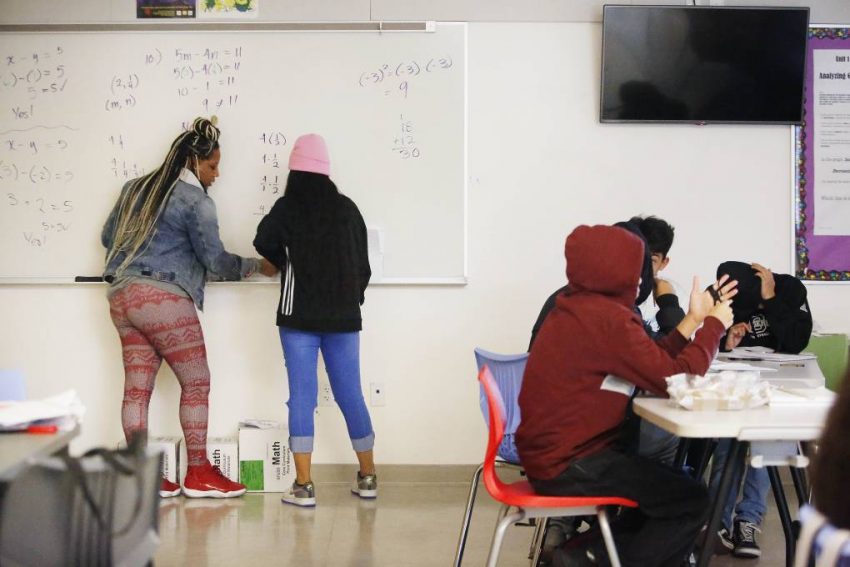
How secondary college academics in low-income secondary colleges in England allocate class time

The researchers studied 32 high-poverty English secondary colleges and checked out how the allocation of classroom time in years 10 and 11 associated to the take a look at scores of seven,000 college students. All through the UK, together with England the place this examine befell, 11th yr college students take Common Certificates of Secondary Training [GCSE] exams, that are akin to highschool exit exams. (Years 10 and 11 are equal to ninth and 10th grades in the US.)
Researchers didn’t show that academics’ selections on how you can spend class time prompted GCSE scores to go up. However they have been in a position to management for trainer high quality, and so they observed that even amongst academics who had the identical rankings, those that opted to allocate extra time to particular person follow work had larger scholar math scores. Equally, amongst English academics with the identical high quality rankings, those that opted to allocate extra time to discussions and group work had larger scholar English scores. “Higher” academics who acquired larger rankings from their friends had a slight tendency to allocate time extra successfully (that’s, extra follow work in math and extra dialogue time in English), however there have been loads of academics who had gotten sturdy rankings from friends who didn’t spend class time this fashion.
The researchers didn’t theorize about why particular person follow work is extra vital in math than in English. I’ve observed that doing a lot of practice problems throughout college hours is an enormous a part of the algebra tutoring applications which have produced sturdy outcomes for teenagers. Advocates of project-based studying as soon as tried to develop a curriculum to show math, however backed off after they struggled to give you good tasks for educating summary math ideas and abilities. However they’d success with English, science and social research.
Though the examine befell in England, Taylor sees classes right here for U.S. educators on how you can spend their class time. “I think that if we repeated this entire setup in excessive colleges in New York or elsewhere in the US that we might see related outcomes,” stated Taylor.
On this nation many academics are inspired to include “math talks” as a approach to develop mathematical reasoning and assist college students see a number of methods for fixing an issue. Progressive math educators may also favor group over particular person work. But this examine discovered stronger math achievement for college kids whose academics devoted much less class time to math discussions or group work.
Critics may complain that take a look at scores shouldn’t be the last word purpose of arithmetic training. Some academics care extra about creating a love of math or inspiring college students to pursue math-heavy fields. We can’t inform from this examine if academics who conduct extra math discussions produce different long-term advantages for college kids.
It’s additionally unclear from this examine precisely what math academics are doing throughout the lengthy stretches of impartial work time. Some could also be milling about providing hints and one-to-one assist. Others is perhaps kicking again at their desks, catching up on e mail or consuming a cup of tea whereas college students full their homework at school.
Even academics who dedicate most of their class time to impartial follow work might start class with 5 or 10 minutes of lecturing. It’s not as if college students are magically educating themselves math, muddling by on their very own, Taylor stated.
“It’s not the one factor that’s happening in these lessons,” stated Taylor.
I think that we’re going to have extra data on how good academics spend their valuable minutes of sophistication time within the close to future, because of enhancements in synthetic intelligence and studying analytics. I can think about algorithms extra precisely analyzing how class time is spent from audio and video recordings, eliminating the necessity for human observers to code hours of tutorial time.
“Even when we don’t know precisely the recipe to offer to academics at present, I believe this examine does say, ‘Effectively, maintain on a minute, perhaps we needs to be considering otherwise about what’s proper if we’re educating math or language’,” stated Taylor. These outcomes, he added, ought to encourage educators to suppose extra about what works finest for every topic.
















